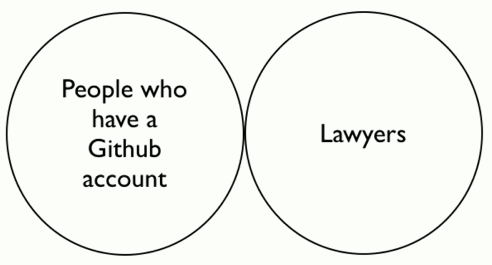Policy Git
A tweet from Paul Downey (@psd) alerted me to a blog post today that has made me feel very good indeed.
Why?
Two reasons:
First, as the title of Andrew Francis' blog post: Publishing the Digital Strategy as a website, rather than on one makes clear, this is an article about civil servants using the Web as the publishing platform, not as a platform for distributing PDFs. As someone tweeted recently: "PDFs — always disappointing." If I click a link I expect to see another Web page — an HTML page. Reading PDFs is always an effort and never a joy. So civil servants changing their work practices to actually create their documents directly in HTML is really good. Want to link to a specific section of a PDF document? You can't — you have to say "download and open the PDF and scroll to page x". In well-written HTML of course you can point people directly to the specific section, such as the section of the W3C Mobile Web Best Practices document that tells you why using tables for layout is a really bad idea.
HTML is the publishing language for the Web, PDF is the workaround for people who can't be bothered to do it properly, so a massive thumbs up to Andrew Francis for that alone. But there's more.
Allow me to go back a little… in June this year, Clay Shirky gave a Ted Talk called How the Internet will (one day) transform government [broken link and embedded video removed].
In an extremely watchable 18 minute presentationhe talks about the way that developers, specifically Linus Torvalds, solved the problem of collaborative working, how people across the world who don't know each other can all contribute to a common document without the whole thing descending into chaos. At 10:38 in the talk, Shirky puts it like this:
A programmer in Edinburgh and a programmer in Entebbe can both take a copy of the same piece of software. Each of them can make changes, and they can merge them after the fact, even if they didn't know of each other's existence before hand. This is cooperation without coordination. This is the big change.
He goes on to suggest that uncoordinated collaborative working could be really good for policy making. And that is the promise, but does it actually work? Can it be implemented?
I was at a workshop in Brussels last week organised by Euractiv that brought together various policy and technology people along with the head of the European Commision's DG CONNECT Robert Madelin (@eurohumph). At that meeting it was pointed out that social media — the best available means by which citizens can make their voice heard by policy makers — has been effective at stopping various pieces of bad legislation. ACTA is held up as the prime example. This legislation was stopped in its tracks by the outcry over its (patently obvious) ridiculousness. The UK government's Red Tape Challenge [broken link removed] doesn't ask for help in creating new policy – it's focused entirely on deleting old policy. Can collaborative action create good policy? Anyone got any examples of where citizen's actually get to create new policy text?
Thought not.
Maybe it's asking too much to suggest that citizens can write good policy. They can sign petitions against, launch Facebook pages against and yes, campaign for an undefined change in a law, but that's not the same as actually writing a policy.
Even if we agree that the writing of good policy that is acceptable to the politicians of the day can really only be done by professionals, there are an awful lot of professionals and so collaborative working is probably a good tool to have. Which brings us back to Clay Shirky. He posits that Git, the distributed version control system developed originally by Linus Torvalds, has the features necessary to support collaborative positive policy making. Computer software is written as text — Git is a system for managing collaboration in text production and the premier implementation of Git is GitHub — and by allowing users to see what text has been deleted and what text has been added, the chaos is contained and true collaboration can take place.
So, can lawyers and policy wonks use GitHub? Sure, but there's a problem as Shirky illustrates at 16:13 in his talk:

And so back to Andrew Francis' blog post that Paul Downey told me about. The real gem is not just that at least some UK civil servants are writing documents in the Web's own HTML and not in MS Word before generating a PDF for distribution via the internet thingy, but yes, they're using GitHub for collaborative working.
Semi-technical civil servants using GitHub for developing policy documents.
Time to redraw Clay Shirky's diagram so those two circles show an intersection of at least Andrew Francis and Sheila Bennett. And that's got to be good for policy making.